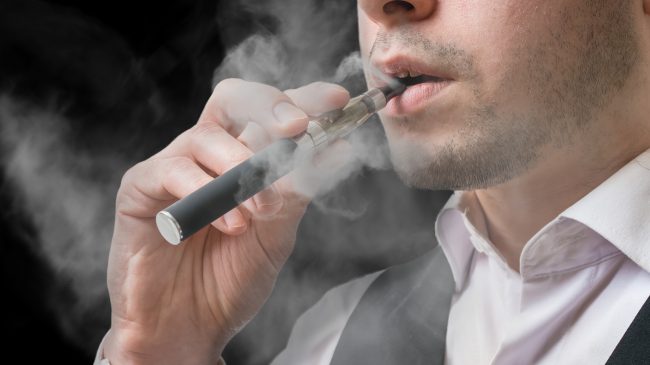Food and Drug Administration rules threatening the survival of America’s independent e-cigarette industry could be overturned if a new lawsuit filed by the nonprofit Pacific Legal Foundation proves successful.
Issued in 2016, the FDA’s “deeming rule” brought e-cigarettes under the agency’s regulatory control, subjecting them to the same kinds of marketing restrictions as tobacco cigarettes.
Even to get approval for sale, vapor products would have to run through a prohibitively expensive pre-market approval process. This process is so expensive and labor intensive that the FDA’s own analysis shows most e-cigarette businesses won’t even attempt to go through it and will have to shut up shop as a consequence.
What exactly does the public gain from FDA imposing such stringent regulations on products which contain no tobacco, are helping people quit smoking, and are estimated to represent no more than five percent of the risks of regular cigarettes?
Indeed, a report published last week by the National Academy of Sciences Medicine and Engineering found “there is conclusive evidence that completely substituting e-cigarettes for combustible tobacco cigarettes reduces users’ exposure to numerous toxicants and carcinogens present in combustible tobacco cigarettes.”
But thanks to the deeming rule, most e-cigarettes will disappear from the market by 2022, when product applications are due. For the minority of products that end up making it through the application process, they face an even greater battle to be allowed to make straightforwardly factual statements about their products to consumers.
In order to inform consumers that vapor products are safer than cigarettes, businesses need to submit a Modified Risk Tobacco Product application. The FDA has never granted one of these applications, not even for snus, a smokeless tobacco that has been shown beyond any doubt to be vastly safer than cigarettes. The prospects of an e-cigarette making it through the MRTP process are close to zero.
Thanks to this regulatory mess, by 2022 we could face the bizarre situation where cigarettes, which kill half of their lifelong users, remain abundant and new cigarettes can come to market with ease but products that are safer and help people quit smoking will be regulated out of existence.
But this outcome is not inevitable, with the deeming rule’s facing a fresh legal challenge. PLF’s lawsuit against the FDA argues the deeming rule is unconstitutional and threatens individual liberty.
One of PLF’s key arguments is that regulations with the force of law can only be signed off by agency executives nominated by the president and confirmed by the Senate. The deeming rule did not comply with this standard. Instead of being signed by an accountable agency executive like the head of the FDA, it was instead signed by Associate Commissioner Leslie Kux, a career bureaucrat impervious to the political process.
“Rules that affect the American people must be issued by officials who are answerable to the political process, not by bureaucrats who have no political accountability,” said PLF attorney Thomas Berry in a press release.
The second argument in PLF’s arsenal concerns basic freedom of speech and the First Amendment. Berry argues the rule “flouts the First Amendment by stopping businesses from advertising truthful information unless they run a regulatory gauntlet.”
The specter of the rule is already having a chilling effect on the vapor industry. “These regulations have already damaged my business and my customers,” said Steve Green owner of Mountain Vapors, a former heavy smoker and one of PLF’s plaintiff’s. “For example, some popular liquids are no longer available because small manufacturers and retailers can’t afford to navigate the regulatory process. I’ve also had to stop helping customers build or repair their vape pens. I stopped because it could classify me as a manufacturer and bury me under regulations.”
If the deeming rule stands it will undermine the Constitution and the rule of law. Not only that, it will destroy an industry employing tens of thousands of people who are helping Americans quit smoking. Both opponents of an unaccountable regulatory state and those who want to reduce tobacco-related harms should celebrate this new challenge to the deeming rule, one of the worst regulations on the books today.

